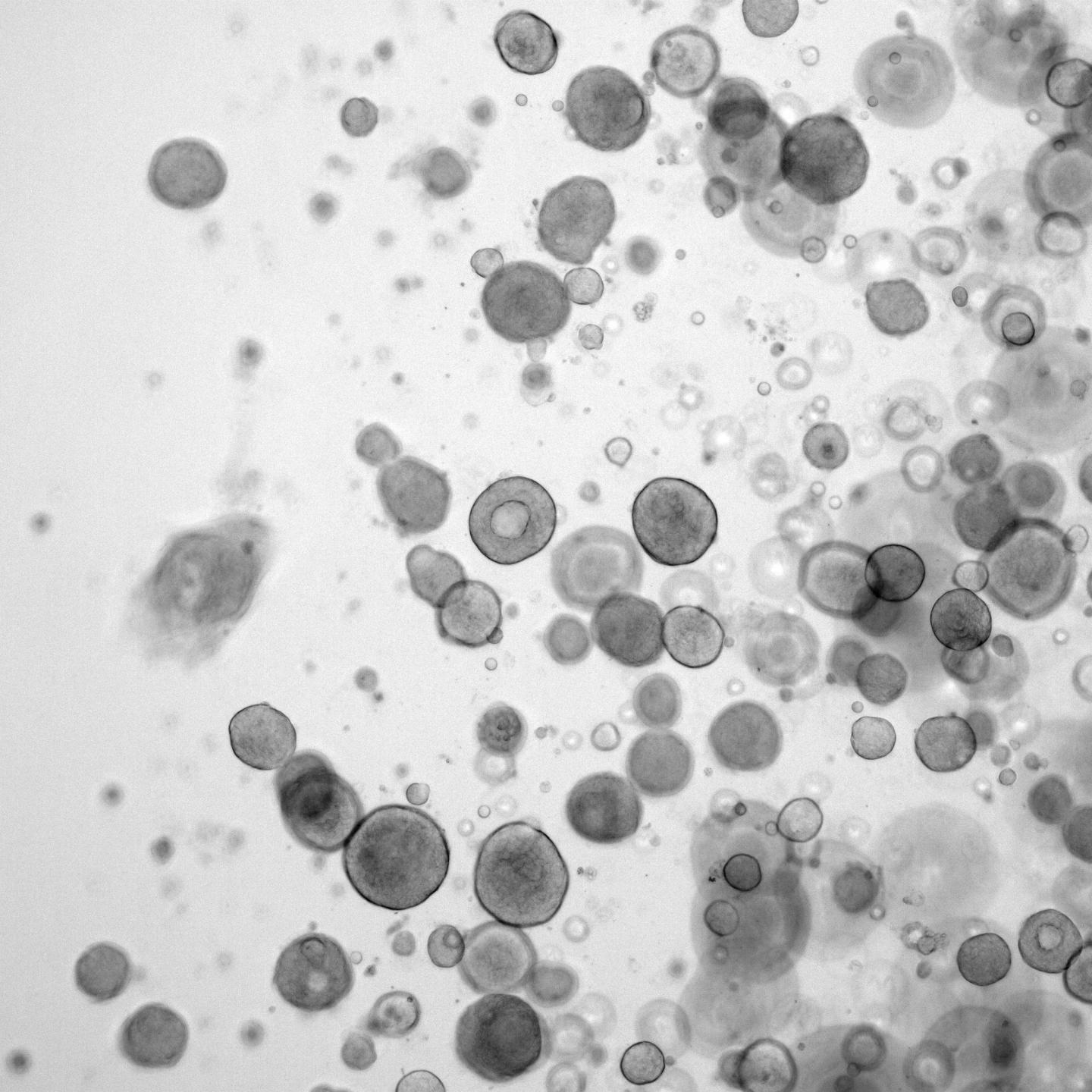Media Release
From: AAASPatient-Derived Organoids Help Predict How Patients Respond to Chemotherapy
Researchers have created a test based on tumor organoids – or 3D tissue cultures – that can help predict how patients with advanced colorectal cancer (CRC) may respond to chemotherapy treatment. In a prospective clinical trial, their organoid-based test predicted responses in 80% of patients treated with the standard therapy irinotecan. Their system may help identify patients who may not respond to toxic chemotherapies and could ultimately assist clinicians in designing more personalized and efficient chemotherapy treatments.
Chemotherapy is considered the backbone of most cancer therapies, but many patients do not respond to treatment and experience severe side effects. Scientists have therefore made it a priority to develop methods that can predict which patients are most likely to benefit from chemotherapy drugs. However, many of these approaches have had only limited success or are still early in development.
Salo Ooft and colleagues created a new strategy that uses organoid models of a patient’s own tumor to predict how their cancer might respond to chemotherapy drugs. They gathered samples from 61 patients with metastatic CRC and used the tissue to generate organoids, which they treated with irinotecan either alone or in combination with the chemotherapy 5-FU.
The organoid system generally reflected how the patients responded to the treatments, correctly classifying 80% of patients treated with irinotecan. Furthermore, the organoids could be generated and screened within 21 days – a substantial improvement over previous systems that required two to six months of preparation. The researchers note the organoids could not predict how patients responded to a combination of 5-FU and the drug oxaliplatin. Nevertheless, the findings suggest that with further improvement, patient-derived organoids could help prevent cancer patients from receiving unnecessary irinotecan-based treatments.


